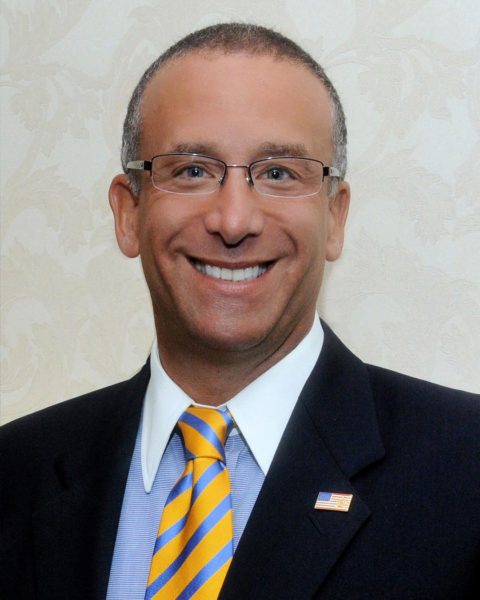
In our digital age of blog posts, social media and “going viral” on the Internet, what can one do when a comment is posted online about an individual – or that individual’s company – which is completely false? What happens when the post is anonymous or has a fictitious name associated with it?
Consider Your Options When You Uncover False Statements Online
Without knowing the identity of the perpetrator, there are certain steps that you can take toward getting the false statement removed from a website.
Most websites have Terms (i.e., terms and conditions, terms of use, terms of service, etc.) that prohibit the posting of defamatory material and include the website operator’s right to remove same. Websites that offer consumers places to “vent” and post complaints about companies and individuals, such as RipOffReport.com and Complaints.com, usually require that users represent that the information they are posting is truthful and accurate. Of course, there is no “gatekeeper” to confirm the truth or accuracy of any post at the time that it becomes available to the online world.
The First Step: Contact the Host Website
The first step towards removal of a false online statement is to contact the host website directly to notify it of the violation of its Terms and to demand that the false statement be removed. You generally can find out who the registrant is of any given website by obtaining the relevant contact information through a WhoIs search on a registrar website, such as networksolutions.com. Once this information is obtained, a carefully worded letter from your attorney to the registrant may result in the removal of the statement from the subject website. Of course, issues may arise in accomplishing this goal because, for example, the Communications Decency Act generally protects Internet service providers (“ISPs”), hosts and websites from liability associated with speech that is posted on their websites, blogs, chat rooms, and even speech republished through search engines. Therefore, threatening litigation against an ISP or other online forum may fall on deaf ears.
If the website refuses to remove the defamatory statement, all is not lost. In some instances, you can easily determine the identity of the perpetrator by the context of the statement (i.e., linking it to a consumer’s repeated complaints to the company, the Better Business Bureau or a state attorney general; or a disgruntled ex-employee’s statements about his or her former employer or boss, etc.). In such cases, and in cases where the perpetrator is not anonymous, your attorney may contact the perpetrator directly and threaten to commence, and thereafter commence, litigation should the subject statement not be removed (or modified) directly by the perpetrator.
What Can You Do in the Case of the Totally Anonymous Perpetrator?
While there are multiple ways to cloak one’s identity online, it is difficult for the average person to be truly anonymous and untraceable. As such, there are usually ways of uncovering a perpetrator’s identity, although they may involve retaining experts.
Different legal avenues also can be pursued. Legal proceedings can be commenced against anonymous “John Doe” Internet users. Once an action is filed, a subpoena can be served on the host website to obtain the Internet Protocol (“IP”) address of the perpetrator, as well as other personally identifiable information (“PII”). The online forum where the subject post appears will generally provide the PII, particularly the IP address, in response to the subpoena, unless a motion to quash is filed. Once the PII is provided, you can search the IP address to determine the location from where the defamatory statement was posted (i.e., the perpetrator’s home or work address). You can also subpoena the ISP that assigned the IP address to discover the perpetrator’s identity.
In difficult cases, you likely will have to hire a forensic expert/cyber investigator to forensically track IP addresses, email addresses and other PII to uncover the actual perpetrator. A good investigator should be able to discover who is behind the defamatory online statement(s) and link the information he or she uncovers to the information produce by the ISP in response to the subpoena.
If the Subject Statement Is of Public Interest and Not Truly “Defamatory,” Beware of the SLAPPback
SLAPP stands for Strategic Lawsuit Against Public Participation, which essentially is a lawsuit filed against a defendant in retaliation for speaking out on a public issue or controversy in, for example, a blog or social media. True SLAPPs do not have a legal basis and are really aimed at intimidation and harassment – ultimately silencing individuals from voicing their opinions in a public setting.
A little over half of the states in the United States and District of Columbia have enacted “anti-SLAPP” legislation to protect an individual’s right to free speech and prevent such lawsuits. “Public issues” include those involving celebrities, public officials and the financial solvency of large companies.
Anti-SLAPP statutes help defendants seek, and often obtain, early dismissal of SLAPP lawsuits. They call for quick hearings on motions to strike complaints and can result in a discovery freeze to protect an anonymous defendant’s identity.
If a defendant is able to demonstrate that the SLAPP action was brought merely for harassment purposes, he or she may file a “SLAPPback” lawsuit against the plaintiff. A “SLAPPback” is essentially a malicious prosecution action against the plaintiff that may seek punitive damages and damages for emotional distress.
What This All Means
If the defamatory statement is not of public interest about a public issue, there really is no SLAPP concern. Of course, if the subject statement truly is defamatory and all of the elements of a defamation claim are present, there really is no SLAPP concern either way. You are thus left with the task of uncloaking the perpetrator and getting all traces of the statement removed from the Internet. While demand letters often work without the need to proceed to litigation, in difficult cases, your only option may be litigation.
If a court ultimately rules in your favor and finds that the statement is defamatory, you can serve the order on the various search engines, like Google, to have them remove defamatory pages from their search index. While certain websites like RipOffReport may refuse to completely remove the original post, it has been our experience that they likely will redact the defamatory statements from the post itself.
About the Authors
David Klein is a partner in the New York City law firm Klein Moynihan Turco LLP (KMT), which advises clients ranging from multi-national corporations to technology start-ups. He speaks and writes extensively on marketing, intellectual property, promotions and technology-related issues.
Christine Rafin is an attorney specializing in Internet, communications and media law. She is General Counsel – MediaCo LLC in New York.
Related reading: An Attorney’s Advice for Removing Negative, Defamatory and Infringing Material from the Internet, by Christine Rafin, Esq.
The material contained herein is provided for informational purposes only and is not legal advice, nor is it a substitute for obtaining legal advice from an attorney. Each situation is unique, and you should not act or rely on any information contained herein without seeking the advice of an experienced attorney.


